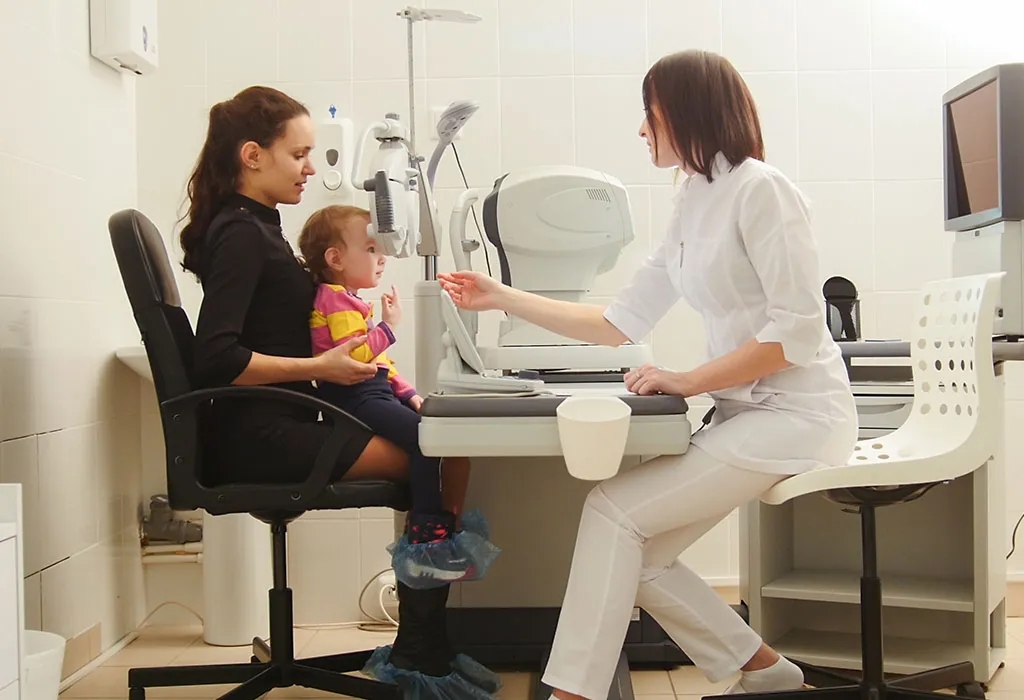Despite being one of the most sensitive organs and important senses of our body, many of us are not aware of the need for caring for our children’s eyes. Most people still think that eye examination is meant for identifying the power of glasses but a comprehensive eye test can do much more than that for your kids.
It is accounted that more than 75 per cent of blindness and 50 per cent of partial sight loss is caused by the lack of regular eye tests and clinical care. Regular care for your child’s eyes can help in keeping eyes healthy, prevent or limit the damage and sight loss caused by certain eye conditions and avoid the need for wearing glasses.
A complete children’s eye exam that covers the lens, retina and optic nerve can help in preventing the onset and progress of ocular symptoms and conditions that are irreversible at a later stage. Children who have a family history of chronic diseases such as diabetes, hypertension or obesity should regularly undergo a thorough eye exam regularly as they are more likely to get their visual function impacted.
Why regular eye examination is important for your child
Regular eye examinations help children improve the quality of their vision to impact their overall lifestyle and wellbeing. A well maintained or corrected vision can help improve their quality of life and detect conditions and prevent the risk of myopia and age-related macular degeneration, which may lead to sight loss in the future.
The regular eye examination for your child can help identify and prevent major eye conditions listed below:
Lazy eye (Amblyopia)
Lazy eye (amblyopia) is an eye condition in which one of the eye’s vision will get reduced due to abnormal visual development during childhood. The lazy or weaker eye will often stroll inward or outwards and in some rare cases, both the eyes can get affected by this condition. Lazy eye will have its onset from the time when a child is born till the age of 7 years, leading to reduced vision. Long-term vision problems due to the lazy eye can be prevented by early diagnosis and treatment for your child. This condition is mostly corrected by prescription glasses or contact lenses for the eye with poorer vision.
Holistic development of the child
Children should have a healthy vision for processing the majority of information they receive in their initial learning phase. The health of your child’s eye will have great importance in their social and emotional language development. A good vision has a significant role in children & #39;s language skill development by the age of 2 years. Effective visual development is important for developing fine motor skills such as picking up and manipulating objects which eventually develop into skills for writing and other hand-eye coordination activities. Vision development is a time-bound process that is crucial for your child’s learning process. The vision development process will get completed only between the age of 6 and 8 years. The pace of learning of your child will become slower if they have an uncorrected refractive error or blurred vision.
Myopia
With the changes in the children’s lifestyle, Myopia which is the condition of nearsightedness is getting more common than ever. The biggest concern about Myopia is that children who already had its onset are very likely to progress the condition throughout childhood. The worsening of Myopia can lead to serious conditions such as cataracts, glaucoma and retinal detachment. It is important to schedule a yearly eye checkup for your child to prevent the risk of myopia and to slow its progression into serious eye problems in the future. The clear and comfortable vision of your child can be ensured only by an annual eye examination at an eye clinic near me.
Children with a family history of chronic progressive eye diseases like glaucoma, macular degeneration and cataracts should be ensured with effective vision management from the age of 6 months. A frequent eye examination can prevent your child from future risk of glaucoma and cataracts which is the leading cause of blindness for people over the age of 60. Macular degeneration damages the retina and causes loss in the centre of the field of vision. With regular eye examination and care from an eye doctor near me, you can prevent your child from the risk of many other eye disorders in the future.
Recommended Eye Test Frequency
More than a window to the soul, eyes are also a window to the overall health of your child. Dr Shalini Jain, a paediatric eye specialist at Dr Shalini Jain’s Samyak eye clinic in Ghaziabad says that the eye test frequency should be once in 6 months from the age of 6 months to 19 years. In Visual Acuity tests reading capacity of your child’s eyes will be assessed by making them read out the fonts of different sizes from a given distance with one eye covered as well with both eyes open. She adds that the current lifestyle and learning methods of children require their higher visual engagement so they should get their eye checkups done more often than once a year.
Schedule an eye exam at Dr Shalini Jain’s Samyak eye center near Vaishali to get the vision of your child checked.


